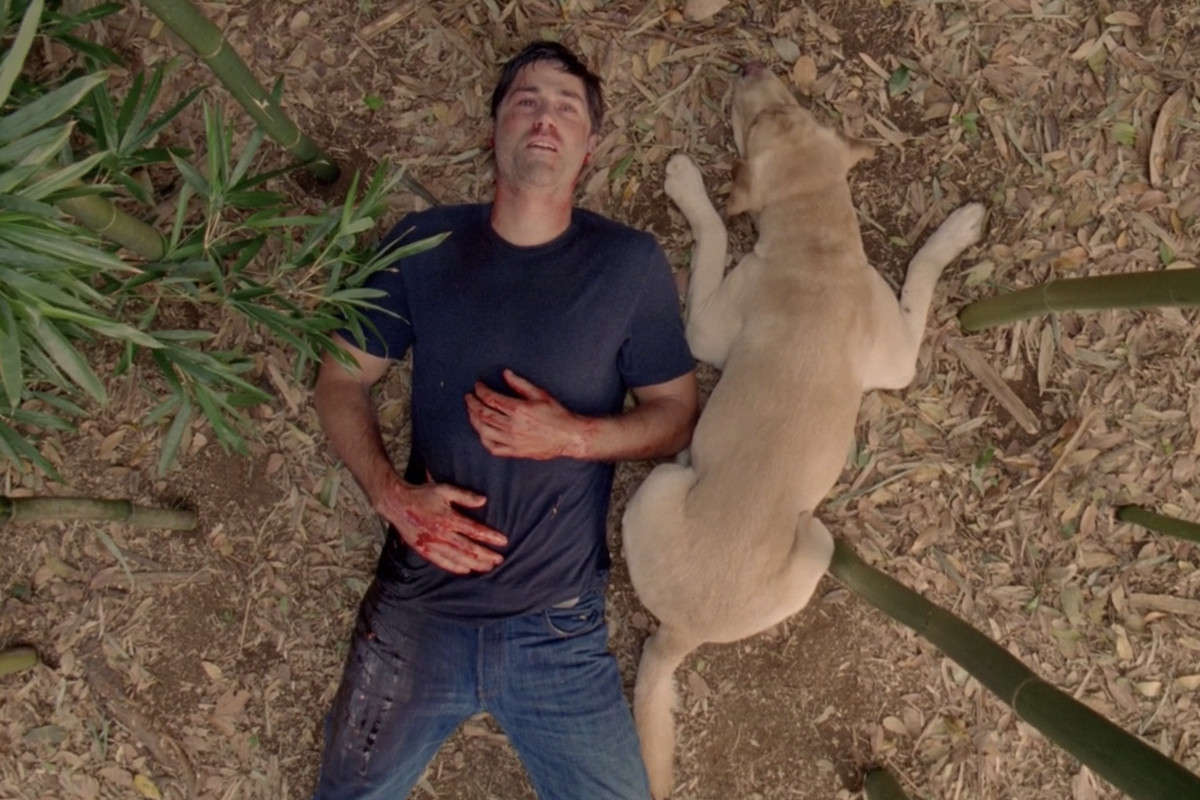Create a free profile to get unlimited access to exclusive videos, sweepstakes, and more!
How a network note accidentally changed how fans interpreted the 'Lost' series finale

The series finale of Lost remains one of the biggest and most-discussed television events of the 21st century, a momentous conclusion to one of the most talked-about shows in recent memory. Lost was always a show rich with the kind of lore that fans could pick apart and view from a thousand different angles, which was both a huge part of its appeal and a key factor in the way some fans still view the ending all these years later.
Many Lost fans still can't stand the final episode, while others will defend it to their last breath, and while the show's writers have made peace with that divisiveness, there is one interpretation they take issue with — if only because it's the one thing they very specifically didn't intend to do.
In a new oral history of the Lost finale over at Vulture, the show's cast and crew — led by writers Carlton Cuse and Damon Lindelof — discuss all the ingredients that went into crafting the show's ending, from scripting to filming to editing and more. Over the course of the discussion, the oral history eventually arrives at the "coda" footage at the very end of the episode, which shows the wreckage of Oceanic 815 on the island's beach one last time. The footage is a haunting little goodbye, a nod in the direction of the show's legendary pilot, and as it turns out, for some fans a key piece of evidence that everyone on Oceanic 815 was dead the whole time, regardless of what went down on the island.
To be clear, the "They were dead the whole time" theory has been around basically since Lost began, as fans looked for pieces of evidence to confirm the idea that the island and its many mysteries were some form of purgatory for a group of people lost to a plane crash. If you believed that theory going into "The End," there's a chance nothing in the episode would've swayed you away from it, but according to Cuse, the footage from the plane wreckage was actually just a leftover inserted as a post-credits coda because Barry Jossen, then-head of ABC Studios, had asked the showrunners to find some way to transition from the show's emotional final seconds without cutting directly to commercial.
"The only thing that we had or we could find was, sometime during the first season, the winter was coming and all of the pieces of the airplane had to get moved off the beach because in Hawaii, in the winter, the North Shore of Oahu, the whole geography changes. Huge waves come in and the beaches erode away," Cuse explained. "It was an environmental hazard. So before all the pieces of the Oceanic plane were moved off the beach, a unit went out and filmed them."
So, that unused footage became the show's post-credits coda, and Lost fans always eager to interpret every little detail did the rest.
"So we put that footage at the end of the show and I think the problem was that the audience was so accustomed on Lost to the idea that everything had meaning and purpose and intentionality," Cuse continued. "So they read into that footage at the end that, you know, they were dead. That was not the intention. The intention was just to create a narrative pause. But it was too portentous. It took on another meaning. And that meaning I think, distorted our intentions and helped create that misperception."
Lindelof, who'd intended for years to bookend the show with Jack Shephard's (Matthew Fox) eyes opening and closing, said that it "never even occured" to him that, after all the storytelling in the finale proper, fans would draw some hidden message from that final snippet of footage. Now, drawing meaning from a post-credits stinger feels commonplace, but that wasn't necessarily the case in 2010, particularly on television. Despite the misconception driven by the footage, though, Lindelof has another theory for why the "They were dead the whole time" theory persists: After a while, people who wanted to believe that just stopped paying attention.
"Whether you like the finale or whether you don’t like the finale, that doesn’t really bug me too much. But that idea — they were dead the whole time — it negates the whole show, it negates the whole point of the show," Lindelof said. "I’ve come to believe over time — whether I’m right or I’m wrong, this is where I find solace — that the people who really think they were dead the whole time did not watch the final season of the show, they just watched the finale. And many of them checked out on the show around Season 3. I found that if someone said to me, 'Were they dead the whole time?' and I asked them, 'Do you know who Lapidus or Faraday are?' they could not answer those questions. Lapidus and Faraday are not characters who just pop in in Season 6; they were major characters who featured very prominently in what I would call the third act of the show. Again, this is not provable data. There are probably people out there who will say 'I’ve watched every single episode, and I believe they were dead the whole time.' I guess I would say, 'Let’s debate. You be Phyllis Schlafly and I’ll be Bella [Abzug] and let’s dance.'"
So, while Lost remains a show that's very much open to interpretation in certain areas, it's showrunners are willing to go to the mat to refute at least one conclusion about the finale.


























